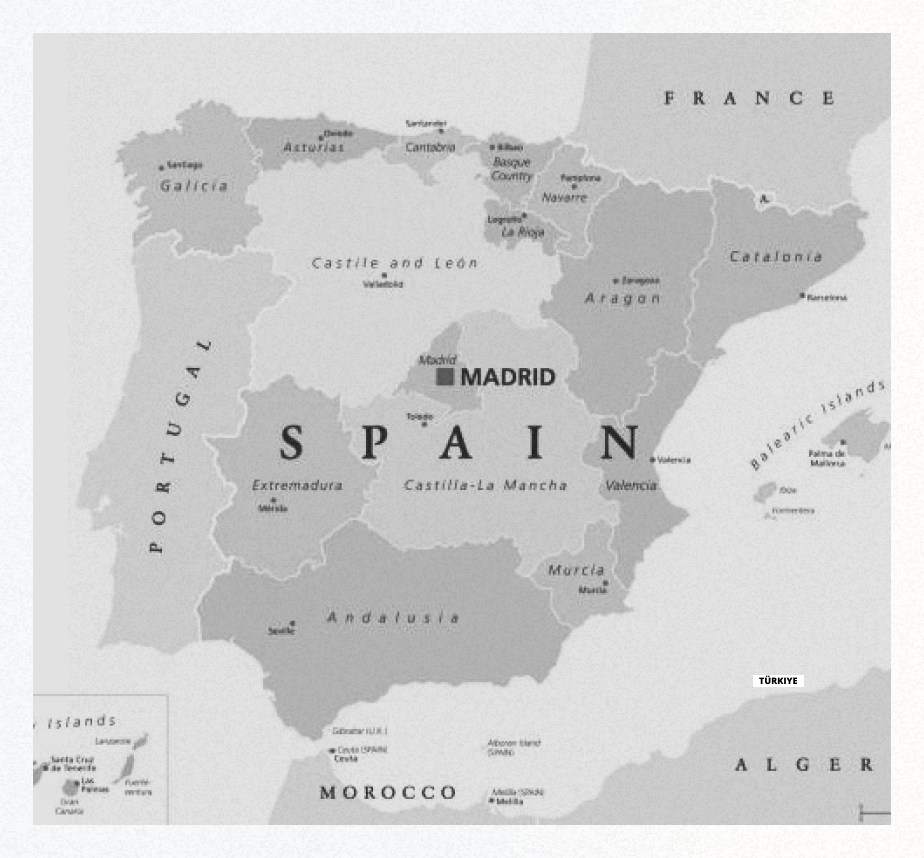
Market Spotlight:
Spain

Factum Scale:
Spain ranks 30th out of 190 countries on the World Bank’s Ease of Doing Business Index, reflecting its business-friendly environment. The country has simplified procedures for starting a business and accessing credit through online registration and tax filing systems. However, challenges persist in dealing with construction permits and resolving insolvency, which involve multiple regulatory steps and can be time-consuming.
-
Starting a business in Spain takes around 12.5 days, supported by digital platforms and e-government services.
-
Spain ranks 12th globally in the “Getting Credit” category, thanks to a robust credit system and legal protections for lenders and borrowers.
-
Dealing with construction permits is a weaker area, ranking 55th. The process often takes over 200 days.
-
Registering property ranks 52nd and involves several steps, such as paying taxes and obtaining certificates, with an average duration of 13 days.
Tariffs & Regulations
Factum Scale:
Spain adheres to the EU’s Common External Tariff, which facilitates trade within the EU by imposing an average tariff of around 1.5% on most goods. However, certain goods, like agricultural products, face higher tariffs due to EU protections.
-
Compliance with EU standards simplifies trade for EU-based companies but can be complex for non-EU companies, especially in areas like data protection.
Fluency in English
Factum Scale:
English is widely spoken in business hubs like Madrid, Barcelona, and Valencia. While Spanish is the primary language, English is frequently used in business, tourism, and international trade, facilitating global partnerships.
-
Higher English fluency is found in metropolitan areas, while rural regions have lower proficiency.
-
The education system includes English instruction from an early age, improving fluency among younger populations.
Labor
Factum Scale:
Spain has a skilled and educated workforce, particularly in technology, finance, and manufacturing. The labor force participation rate is around 59%, and the high youth unemployment rate (~13.3% as of 2023) creates a competitive job market.
-
Significant vocational and technical training has fostered a pool of tech-savvy, bilingual professionals, especially in urban areas.
Economic Stability
Factum Scale:
Spain is the fourth-largest economy in the Eurozone, with a GDP of approximately €1.39 trillion in 2023. Despite recent economic challenges, Spain has maintained moderate growth, and its projected GDP growth rate 2024 is 1.8%.
Society, Culture, and Business Etiquette
Factum Scale:
Spain has a rich cultural heritage with a focus on relationship-building in business. Spaniards value trust in business, and engaging in informal conversation is customary before negotiations.
-
Business attire is formal, particularly in banking and corporate settings.
-
Greetings typically involve a firm handshake. Titles and last names are used until invited to use first names.
Tech Innovation
Spain is a growing tech innovation hub, particularly in fintech, renewable energy, and smart cities. Government initiatives like the Spain Entrepreneurial Nation Strategy aim to make Spain a top tech hub by 2030.
-
Barcelona and Madrid have established startup ecosystems with support from incubators, accelerators, and venture capital.
Critical Areas for International Engagement
-
Renewable Energy: Spain is a leader in solar and wind energy, offering opportunities for research collaboration and infrastructure development
-
Agriculture Technology (AgriTech): Spain is open to AgriTech solutions to improve productivity and sustainability as a significant agricultural producer
-
Tourism & Hospitality Tech: Spain’s thriving tourism industry creates a high demand for tech solutions to enhance hospitality and customer experiences
-
Smart Cities: Barcelona leads intelligent city initiatives, providing opportunities for companies in urban mobility, data analytics, and sustainable infrastructure.
Business Structures
-
Sociedad de Responsabilidad Limitada (SRL): Similar to an LLC, SRL is commonly used by foreign investors and has a minimum capital requirement of €3,000.
-
Sociedad Anónima (SA): Suitable for larger companies, allowing share trading with a minimum capital requirement of €60.
-
Branch Office: Enables foreign companies to operate without forming a separate entity, though compliance with local tax and legal regulations is required.
-
Representative Office: For companies focusing on marketing or promotional activities without engaging in commercial transactions.
Business Landscape
Spain’s economy includes large corporations, SMEs, and a significant informal sector. The government promotes entrepreneurship through tax incentives, grants, and startup support.
-
Rapid growth in the tech sector, especially in Barcelona and Madrid, attracts international investors in mobile tech, fintech, and renewable energy.
-
Businesses may need help navigating regulatory requirements and complex labor laws.
Notable Institutions
-
Invest in Spain: Provides support for foreign investment with resources and incentives.
-
Spain’s Chamber of Commerce: Assists with regulatory compliance and connects international firms with local partners.
-
Barcelona Activa & Madrid Emprende: Local initiatives that promote entrepreneurship through training, resources, and funding.


